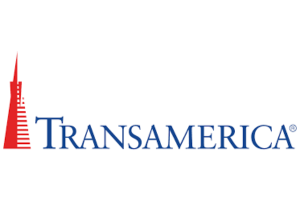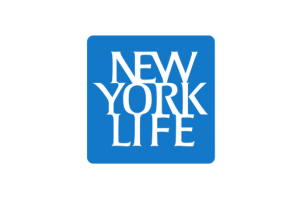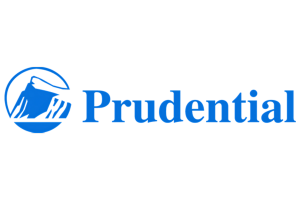Light Pollution Effects in Your Life: Impact on Driving, Health, and Home Safety
The harmful impact of light pollution on our lives: understanding its effects on driving, health, and home safety. Discover the dangers of excessive artificial light, such as temporary night blindness while driving, increased risks of accidents, and compromised home security. Enter your zip code to compare rates from top insurance providers and safeguard your home and health today.
Read more Secured with SHA-256 Encryption





Compare Quotes From Top Companies and Save
Life insurance policies starting at less than $1/day




Table of Contents
Table of Contents


Insurance and Finance Writer
Laura Gunn is a former teacher who uses her passion for writing and learning to help others make the best decisions regarding finance and insurance. After stepping away from the classroom, Laura used her skills to write across many different industries including insurance, finance, real estate, home improvement, and healthcare. Her experience in various industries has helped develop both her ...
Laura Gunn


Licensed Insurance Agent
Jeffrey Manola is an experienced life insurance agent who founded TopQuoteLifeInsurance.com and NoMedicalExamQuotes.com. His mission when creating these sites was to provide online consumers searching for life insurance with the most affordable term life insurance, permanent life insurance, no medical exam life insurance, and burial insurance. Not only does he strive to provide consumers with t...
Jeffrey Manola
Updated October 2024
Discover the far-reaching effects of light pollution and its impact on your daily life.

This comprehensive article explores the dangers posed by excessive artificial light, such as compromised night vision while driving, health risks, and compromised home safety.
Dive into practical solutions to reduce light pollution and protect yourself and your loved ones. Take control of your safety and enter your zip code to compare rates from the best insurance providers, ensuring comprehensive coverage for your home and peace of mind for your family.
Types of Light Pollution
There are many types of light pollution that radiate from various sources. The heavier an area is populated, the worse the light pollution becomes. Light pollution is the use of excessive artificial light to illuminate areas that do not necessarily need lighting. According to the Lighting Research Center, there are three types of light pollution: glare, skyglow, and light trespass. Each of these types can contribute to one another.
- Glare is excessive brightness that can distort vision and cause eye discomfort. This type of light pollution commonly comes from our use of televisions, personal computers, laptops, smartphones, and tablets. There are also sub-categories of glare, such as disability glare and discomfort glare. Both types cause various loss of night vision from bright and poorly designed lights.
- Skyglow occurs over urban and suburban areas where artificial light is needed in the evening. This can come from building and antenna illumination and spotlights. The evening skyline of Los Angeles has skyglow light pollution, which gives the air around the city an orange glow.
- Light trespass is light falling where it is not For example, street lights and lights illuminating an entryway. The light tends to spread beyond its intended spot, causing night blindness and decreasing visibility of the night sky.
For more information, visit:
- CIRES: Light pollution map
- Dark Skies Awareness: What is light pollution?
- Prairie Astronomy Club: Light pollution fact sheet
Free Life Insurance Comparison
Compare Quotes From Top Companies and Save
Secured with SHA-256 Encryption
Safety Concerns Related to Light Pollution
Excessive light pollution can cause numerous health and environment issues. The main safety issue is the health and ability of our sense of sight. As reported by the Florida Atlantic University, the use of excessive light at night causes the night vision we do have to decrease incredibly. The rod cells in our eyes give us the ability to see in the dark. However, light pollution cancels the cells ability to do so. The glaring light decreases our ability to see in the dark beyond the light, thus causing one to temporarily become night-blinded. This is a huge safety concern when walking around at night, whether it is seeing a possibly dangerous person in the shadows or an obstacle in our path that can cause us harm. To learn more, visit:
- Dark Society: Lighting for safety and security
- National Institute of Justice: Crime solutions – Improved street lighting
- Illinois Coalition for Responsible Outdoor Lighting: Why does outdoor lighting matter?
Driving and Transportation
Light pollution not only affects us around the home but can also be a hazard while driving. Highways use bright street lights to illuminate the road with the intention of increasing visibility. However, those street lights can just as easily reduce our night vision. Poorly designed streetlights can cause light trespass, where the light illuminates an area not intended to be illuminated. With decreases in our night vision while driving, we are at a higher risk of being unable to see pedestrians and other obstacles in the road.
Some states have worked to decrease light pollution caused by streetlights. A light pollution handbook from the Maryland Government website states how the eye’s inability to quickly adapt to the sudden changes of bright light to no light is dangerous for drivers. Poorly designed streetlights with high powered bulbs cause glare and light trespass, which decreases visibility on the road in front of drivers.
Brightly lit and poorly designed advertisements and highway signs can also distract us while driving, which increases our risk of having an accident. Numerous billboards litter the side of highways. Signs with upward facing lights contribute to skyglow, light trespass, and distracting light. For more information, go to:
- SPIE: LED light pollution
- Volt.org: Davis, California streetlight retrofit
- Flagstaff Arizona Dark Skies: Lamp spectrum and light pollution
Home Safety
Ultra-bright lights that cause light trespass and glare can actually be more detrimental to the safety of your home and business than helpful. Brightly lit areas give us a sense of safety but can actually decrease our eyes’ natural ability to see in the dark. Bright lights without shields can cause deep, dark shadows that we could otherwise see objects or people in if they were properly designed.
Constant, bright light from outdoor fixtures actually allow home intruders to assess homes easier. Studies have shown that brighter light does not always correlate to safer conditions at night. A report conducted in Chicago and posted by the Center for Problem-Oriented Policing suggests that crime increased with more light. While more lights decrease our fear of crime, whether it actually decreases crime remains to be seen. For more information, visit:
- Globe at Night: The light pollution safety brochure
- PBS.org: The city dark – Light and crime
- NPR.org: Should you leave your lights on at night?
Free Life Insurance Comparison
Compare Quotes From Top Companies and Save
Secured with SHA-256 Encryption
Health and Well-being
Light pollution not only disrupts our view of the nighttime sky but also disturbs our health. All types of light pollution can be found in our own homes. The biggest culprits are generally our entertainment electronics such as televisions, computers, and smartphones. The blue light radiated from most of these strain our eyesight and cause us to lose the ability to see in the dark. Using devices such as smartphones before bed can cause issues like insomnia, which is a growing problem in the United States.
The type of bulbs we use in our lighting fixtures increases our health issues as well. According to an article by Environmental Health Prospectives, studies concluded that exposure to artificial nighttime lights can disrupt our circadian clock which controls a number of functions like brain wave patterns, hormone production, and cell regeneration. Continual exposure is said to be associated with a few medical disorders such as depression and cardiovascular disease.
In a report conducted by the AMA, it states that the popular LED lights, touted for their energy saving properties, are said to be more harmful to your health than saving a few dollars in energy. The blue light it emits can cause nighttime glare, decreases visual safety, and suppresses the production of melatonin. To learn more, visit:
- Inside Science: Astronomers encourage cities to shield outdoor lighting
- US Library of Medicine: Effect of light on human circadian physiology
- AAAS : Artificial light impacts astronomy as well as human health
Tips and Solutions to Help Reduce Light Pollution
Making a huge impact on reducing light pollution is easy. The suggestions below are things you can easily start right away.
- Use reflectors along your driveway instead of lights.
- Change the type of light bulbs you use. Use warm white or orange-hued bulbs.
- Select lighting products certified by the IDA.
- Turn lights off in rooms you are not
Home Safety Lighting Tips
- Replace bright globe lights with motion sensor lights. Control the sensitivity of the motion sensors, so the lights do not go off with every movement nearby (ex. trees swaying in the wind).
- Use lower wattage bulbs or shields on fixtures. Ultra-bright bulbs can create deep shadows and hinder your eyes’ ability to see at night. Lower wattage bulbs or using shields provide light but allow you to see your surrounding area easily.
- Turn off lights outside and inside the home or use low light bulbs.
For more ideas, go to:
- Everything Connects: How to reduce light pollution
- National Conference of State Legislators: States shut out light pollution
- Ventura County Astronomical Society: Light pollution reduction information
- Stow, Massachusetts: Good neighbor lighting pamphlet
Professional Groups and Organizations
For more information or to learn more about light pollution and its effects, please visit the websites below.
International Dark Sky Association has a great amount of information. Start on their main page.
Astronomers without Borders discusses light pollution in relation to star gazing. Visit their main page to get started.
The Astro Society has an informative section dedicated to light pollution.
NASA’s Night Sky Network has a great section on light pollution and you.

Frequently Asked Questions
What is light pollution?
Light pollution is the excessive use of artificial light that illuminates areas that do not necessarily require lighting, causing negative environmental and health effects. It can come from a variety of sources and can include glare, skyglow, and light trespass.
What are the negative effects of light pollution on our health?
Excessive light pollution can cause numerous health issues, particularly related to our sense of sight. The glaring light can cause temporary night blindness, which can be dangerous while driving or walking around at night.
Can light pollution affect my car insurance rates?
Light pollution itself does not affect car insurance rates, but accidents that result from night blindness due to excessive light pollution can cause rates to go up. This is because insurers see it as a higher risk for accidents.
How can I reduce light pollution in my home?
You can reduce light pollution in your home by using only the necessary amount of lighting, selecting light bulbs with lower wattage, or using outdoor lighting that is directed downward rather than upward. By doing so, you can save energy and reduce your environmental impact while minimizing the negative effects of light pollution.
Does home insurance cover damage caused by light pollution?
Home insurance typically does not cover damage caused by light pollution. Light pollution is considered a natural phenomenon that is not typically covered by insurance policies. However, if the damage was caused by a related event such as a power outage, then it may be covered under your policy’s provisions.
Get a FREE Quote in Minutes
Insurance rates change constantly — we help you stay ahead by making it easy to compare top options and save.








